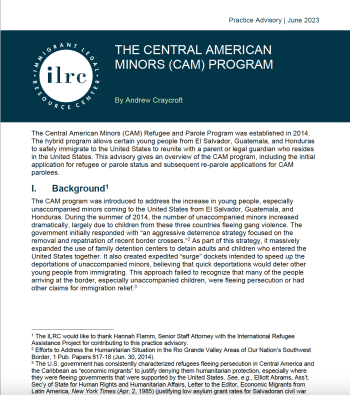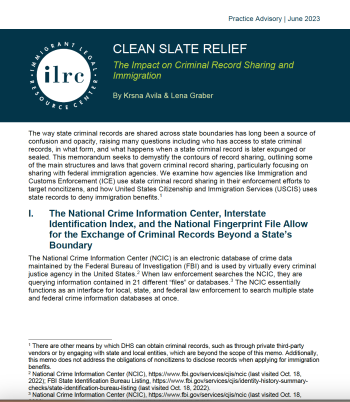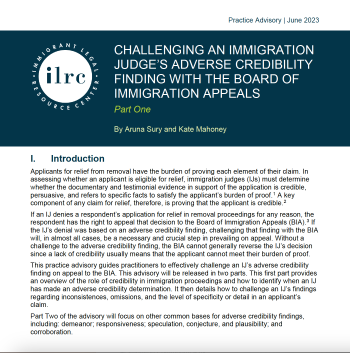
This practice advisory covers ways to gather information to determine whether your client might be inadmissible, how to address inadmissibility issues when applying for U nonimmigrant status, and how to file for an inadmissibility waiver for a U nonimmigrant applicant.
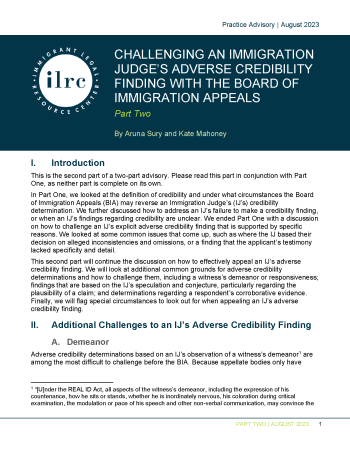
This is the second part of a two-part practice advisory on how to effectively challenge an immigration judge's adverse credibility finding with the Board of Immigration Appeals. The two advisories should be read together, as neither part is complete on its own. This second part of the advisory discusses how to challenge adverse credibility findings based on a witness's demeanor or responsiveness; findings that are based on an immigration judge's speculation and conjecture, particularly regarding the plausibility of a claim; and determinations regarding a respondent’s corroborative evidence. It also flags special circumstances to look out for when appealing an immigration judge's adverse credibility finding.
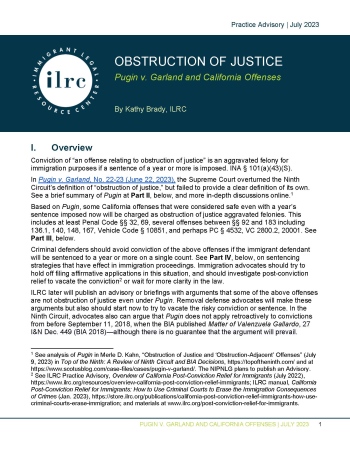
Conviction of “obstruction of justice” is an aggravated felony if a sentence of a year or more is imposed. In Pugin v. Garland, No. 22-23 (June 22, 2023), the Supreme Court overturned the Ninth Circuit’s definition of obstruction, but failed to provide a clear definition of its own. Now some California offenses are likely aggravated felonies if there is a sentence of year or more, including Penal Code §§ 32, 69, 136.1, 148, Vehicle Code § 10851, and others.
This Advisory discusses California offenses under Pugin, and discusses California criminal sentencing dispositions that avoid a sentence of a year or more for immigration purposes.
This Advisory discusses California offenses under Pugin, and discusses California criminal sentencing dispositions that avoid a sentence of a year or more for immigration purposes.
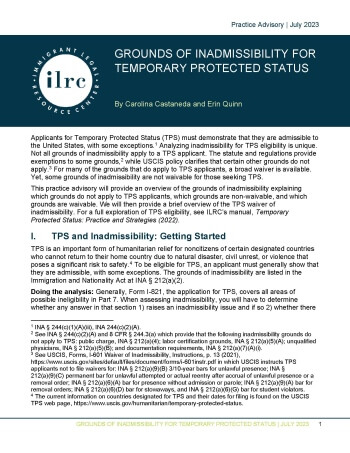
This practice advisory provides an overview of the grounds of inadmissibility for Temporary Protected Status (TPS) explaining which grounds do not apply to TPS applicants, which grounds are non-waivable, and which grounds are waivable. It also offers an overview of the TPS waiver of inadmissibility.
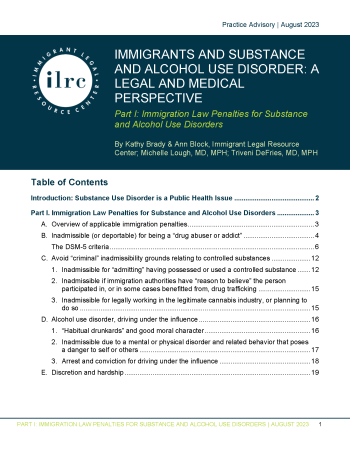
Immigration law demonizes people whom it labels as “drug abusers and addicts,” “habitual drunkards,” and “alcoholics.” The implication is that they are morally weak, dangerous, or evil. An immigrant who comes within such a category can be found inadmissible and ineligible to establish good moral character, and can be denied several forms of immigration relief as well as naturalization. But from a scientific perspective, these people suffer from a substance use disorder (SUD), a medical condition that frequently arises after the person has undergone severe trauma. Substance Use Disorder is a growing health crisis that currently affects over 20 million people in the United States.
This Advisory is written by immigration attorneys and medical doctors specializing in SUD, to examine the issue from both perspectives. Part I of the advisory discusses the several immigration law penalties based on substance use (even when use has not risen to a disorder) and suggests legal defense strategies. Part II of the advisory reviews current medical information about the disorders and discusses how this information can address questions that arise in immigration proceedings.
This Advisory is written by immigration attorneys and medical doctors specializing in SUD, to examine the issue from both perspectives. Part I of the advisory discusses the several immigration law penalties based on substance use (even when use has not risen to a disorder) and suggests legal defense strategies. Part II of the advisory reviews current medical information about the disorders and discusses how this information can address questions that arise in immigration proceedings.
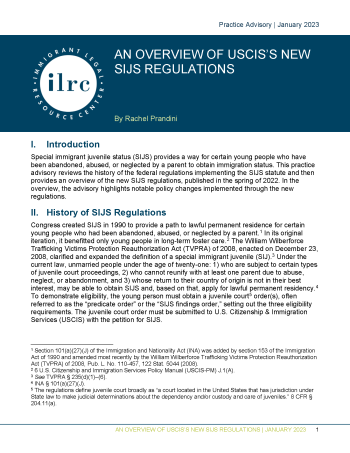
Special immigrant juvenile status (SIJS) provides a way for certain young people who have been abandoned, abused, or neglected by a parent to obtain immigration status. This practice advisory reviews the history of the federal regulations implementing the SIJS statute and then provides an overview of the new SIJS regulations, published in the spring of 2022. In the overview, the advisory highlights notable policy changes implemented through the new regulations.

